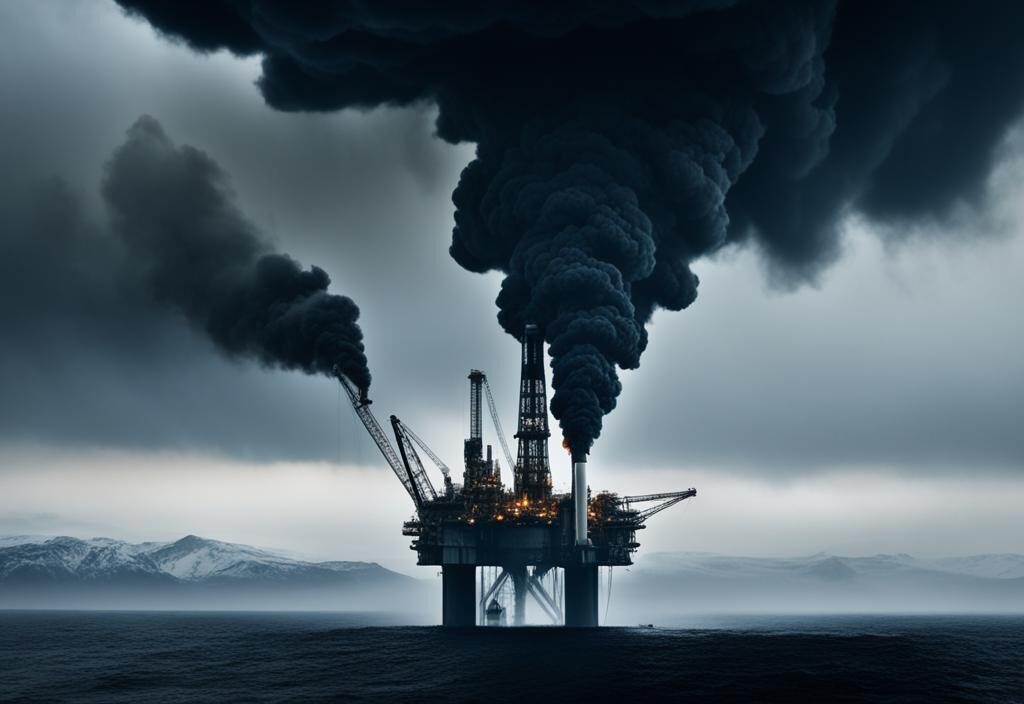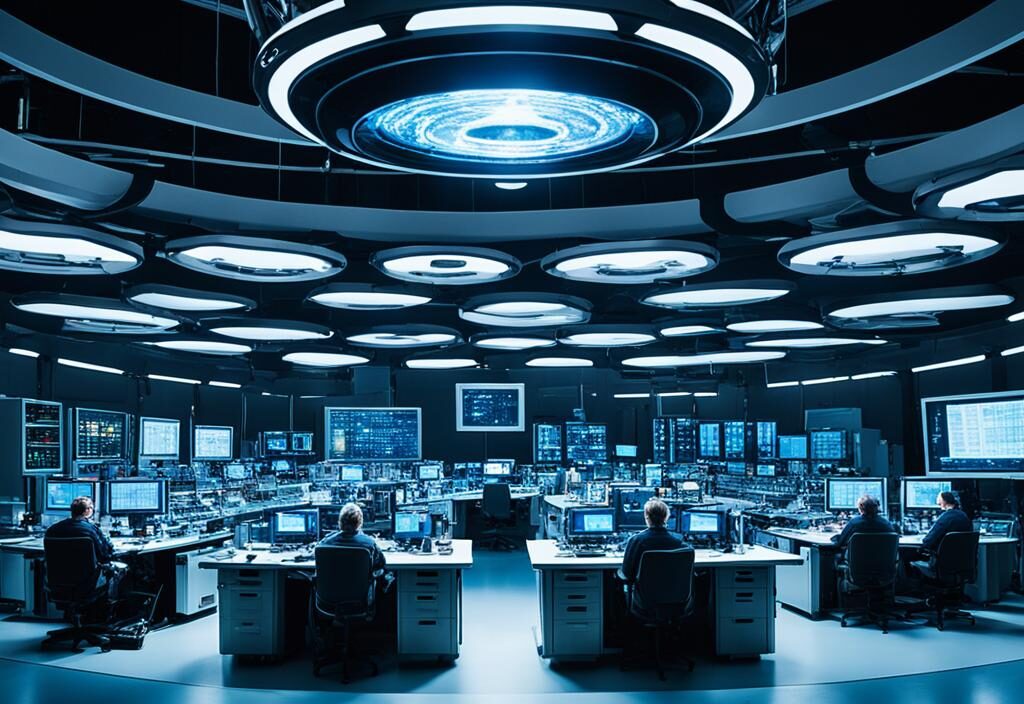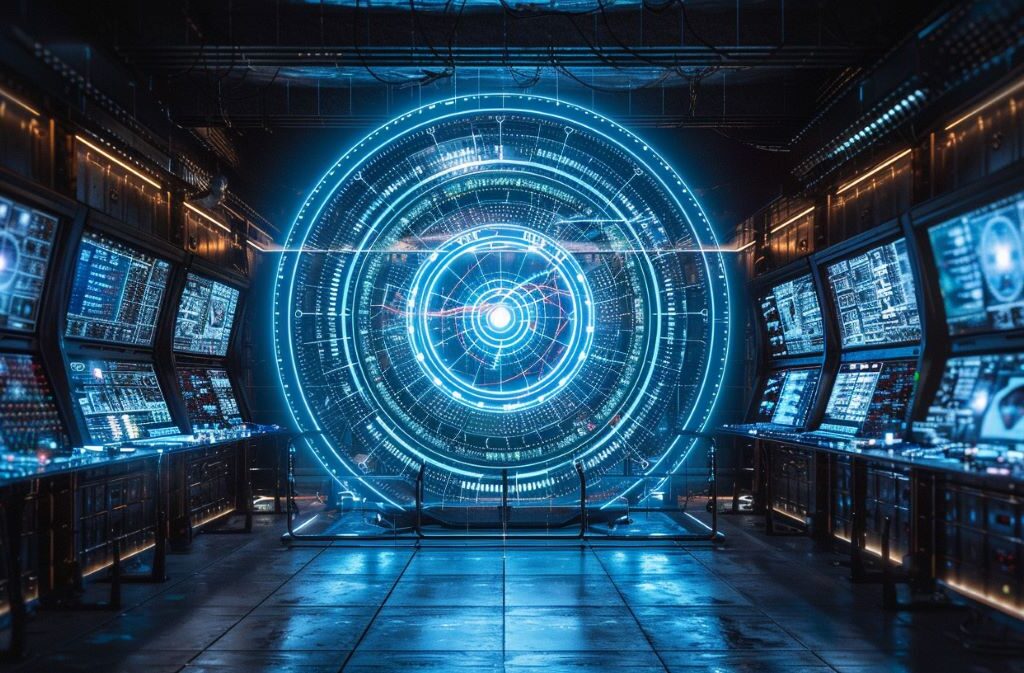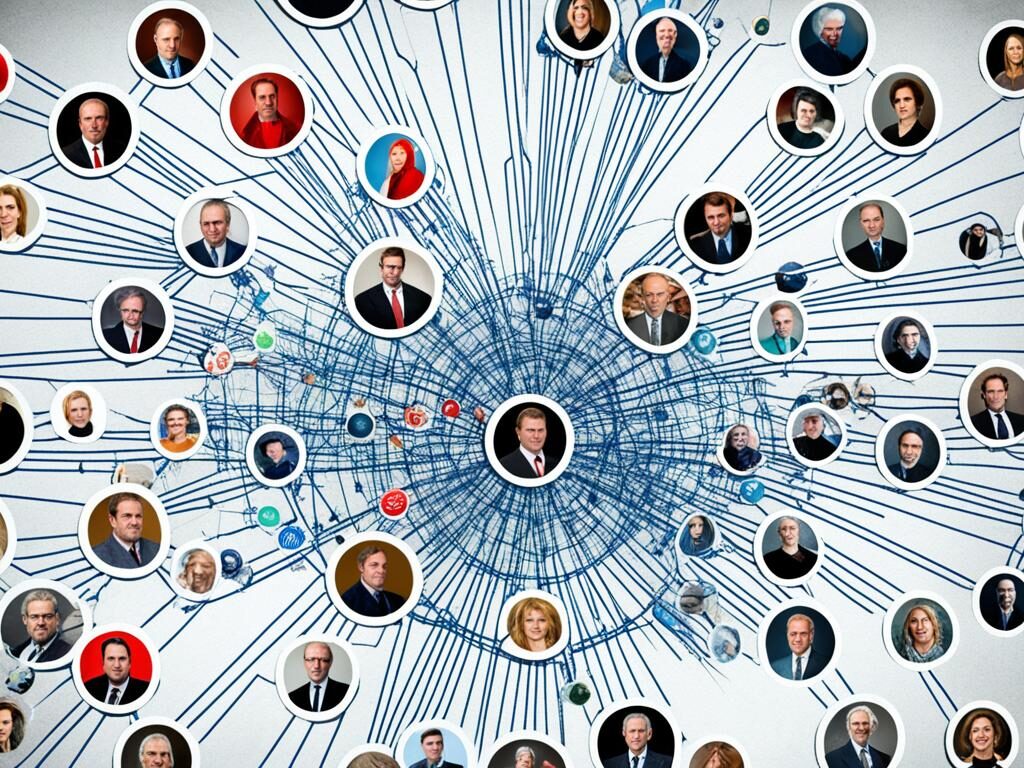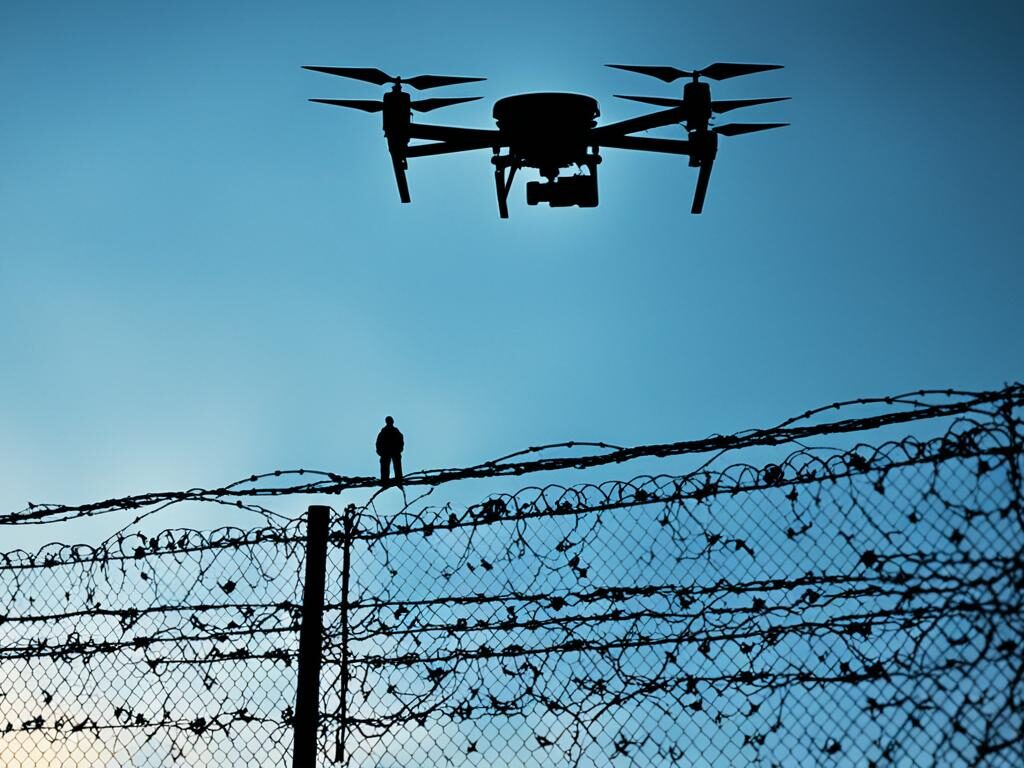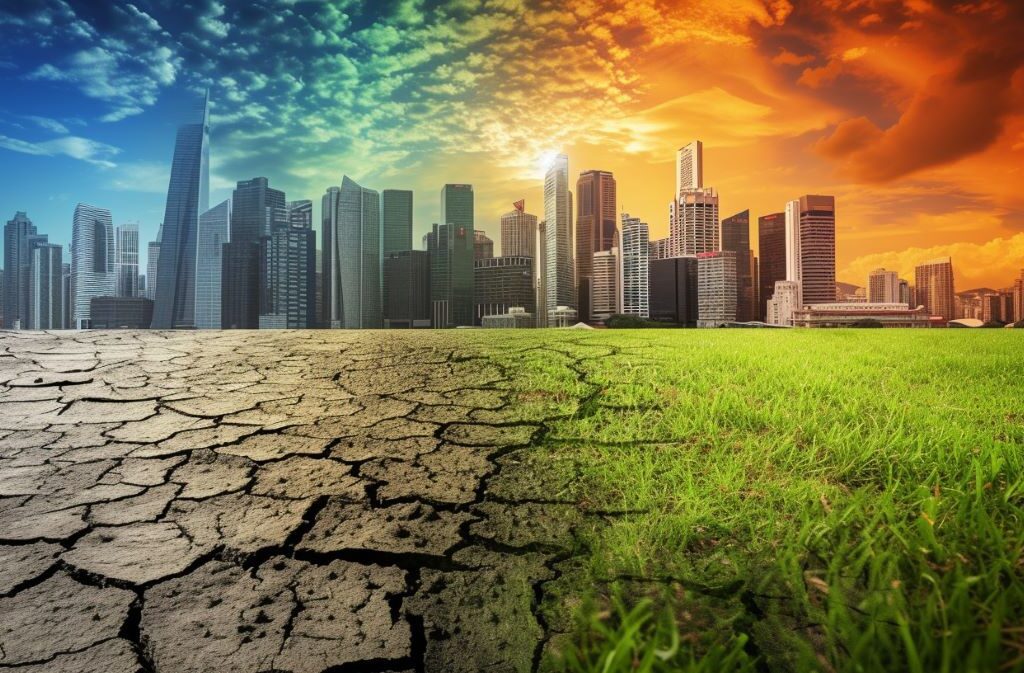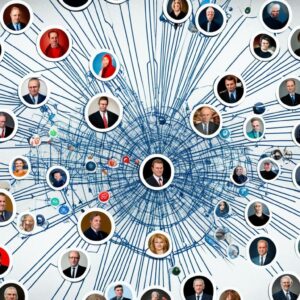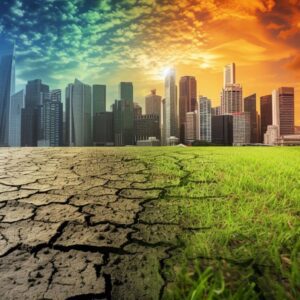Summary
- Fossil fuel industries, conservative think tanks, and media outlets play a significant role in climate change denial, using tactics like misinformation and doubt to challenge mitigation efforts.
- Political and ideological beliefs, along with government and corporate pressures, fuel skepticism towards climate science, hindering consensus and action.
- Counteracting denial requires enhancing scientific literacy, debunking myths, and advocating for policies based on scientific consensus.
Climate change denial, also known as global warming denial, is the rejection or dispute of the scientific consensus on climate change.
It is characterized by tactics that create the appearance of a scientific controversy where none exists.
Deniers often question the extent to which climate change is caused by human activity, its impact on nature and society, and the effectiveness of adaptation strategies.
The denial movement is supported by various interests, including the fossil fuel industry, conservative think tanks, and ultraconservative media outlets.
Climate change denial undermines efforts to address and mitigate the effects of climate change, and it is fueled by political, economic, and ideological motivations.
The Tactics of Climate Change Denial
Climate change denialists employ various tactics to spread doubt and misinformation and undermine the scientific consensus on climate change. These tactics are designed to create the illusion of a legitimate scientific controversy, even in the face of overwhelming evidence.
One common tactic used by climate change denialists is cherry-picking data. They selectively choose data points that support their narrative while ignoring or downplaying the broader body of scientific evidence.
By focusing on isolated examples or short-term fluctuations, they attempt to discredit the long-term trends that clearly point to climate change.
Another tactic is the promotion of alternative explanations for observed climate changes. Denialists often propose alternative hypotheses or claim that natural variability is solely responsible for climate fluctuations.
By casting doubt on the human influence on climate change, they aim to undermine public trust in climate science.
Climate change denialists are also known for spreading misinformation and perpetuating climate change myths.
These myths can range from exaggerated or distorted claims about the scientific consensus to false statements about the causes and impacts of climate change.
Disseminating false information in climate science
- Rhetorical strategies are key in climate change denial, utilizing persuasive language to suggest a debate among scientists.
- Denialists highlight uncertainties and outliers to imply expert disagreement, despite a strong scientific consensus.
- This creates the false impression of significant debate over climate change, challenging the recognized consensus among experts.
Climate change denialists employ a combination of cherry-picking data, promoting alternative explanations, spreading misinformation, and utilizing rhetorical strategies to sow doubt and confusion.
By understanding these tactics, it becomes easier to identify and challenge climate change denial, promoting a more accurate understanding of the climate crisis.
The Influence of Special Interest Groups
Special interest groups, such as the fossil fuels lobby, oil companies, and industrial interests, wield significant influence in shaping the narrative around climate change.
These groups have been identified as key supporters of efforts to sow doubt and undermine the scientific consensus on climate change.
The fossil fuels lobby, comprising powerful organizations representing the interests of oil, gas, and coal companies, plays a central role in climate change denial.
These groups have a vested interest in preserving the dominance of fossil fuels and resisting the transition to renewable energy sources.
One notable example of these special interest groups is the Koch brothers. Charles and David Koch, billionaire industrialists heavily involved in the fossil fuel industry.
They have been linked to funding climate denial efforts through their extensive political and philanthropic networks.
With their immense financial resources, these special interest groups fund campaigns, think tanks, and organizations that disseminate misinformation and doubt regarding the reality and severity of climate change.
By investing in strategic messaging and lobbying efforts, these groups influence public opinion and shape policy decisions to protect their economic interests.
This perpetuates the spread of climate change denial and obstructs meaningful action to combat the environmental crisis.
It is essential to recognize the role that special interest groups play in influencing public discourse and decision-making processes surrounding climate change.
Understanding their motivations and tactics is crucial in effectively countering climate denial and fostering a more informed and sustainable future.
Political and ideological Motivations
Climate change denial is driven not only by scientific skepticism but also by political and ideological motivations.
Government pressure, political interests, and ideological beliefs all play a role in the perpetuation of climate change denial.
Many governments and politicians, particularly those influenced by economic interests tied to the fossil fuel industry, have been reported to exert pressure on scientists and suppress climate change research.
This government pressure can hinder the dissemination of accurate information about climate change and impede efforts to address the issue effectively.
In addition to government pressure, political interests also contribute to climate change denial.
Conservative and right-wing ideologies, which prioritize limited government intervention and free-market capitalism, often align with the denial of climate change.
Some politicians and interest groups may deny climate change in order to protect economic interests and maintain the status quo.
By denying climate change, individuals and organizations with political and ideological motivations can sow doubt and confusion among the public and impede progress in addressing the global climate crisis.
Government Pressure
Government pressure plays a significant role in perpetuating climate change denial. In some cases, governments influenced by economic interests tied to the fossil fuel industry may exert influence to suppress climate change research and silence scientists who advocate for action on climate change.
This pressure can take various forms, such as withholding funding for climate change research, censoring scientific reports that highlight the reality and severity of climate change, and even intimidating scientists who speak out about the need for climate action.
By exerting pressure on scientists and stifling climate change research, governments can create an environment in which denial and skepticism thrive, hindering efforts to address the issue effectively.
Political Interests
Climate change denial is often driven by political interests, particularly those associated with conservative and right-wing ideologies. These ideologies prioritize limited government intervention, free-market capitalism, and the protection of economic interests tied to industries that contribute to climate change, such as the fossil fuel industry.
Politicians who align with these ideologies may deny or downplay the reality and severity of climate change in order to protect economic interests and maintain the status quo. By denying climate change, they avoid calls for regulation, carbon pricing, and other measures that could impact industries contributing to greenhouse gas emissions.
Furthermore, some conservative think tanks and political organizations receive funding from industries that have a vested interest in denying climate change. This funding supports the dissemination of climate change denial propaganda and influences public opinion by promoting alternative explanations and downplaying the scientific consensus on climate change.
Ideological Interests
Ideological interests also play a role in climate change denial. Conservative and right-wing ideologies that prioritize limited government intervention, individual freedoms, and free-market capitalism may be incompatible with the actions required to mitigate and adapt to climate change.
For individuals holding these ideological beliefs, accepting and acknowledging the reality of climate change may necessitate significant changes in lifestyles, economic systems, and societal structures. Denying climate change allows individuals to maintain their existing beliefs and resist the need for collective action.
Climate change denial can also be fueled by ideological opposition to scientific authority and skepticism towards the role of government in addressing societal challenges. Some individuals may view climate change as an issue manufactured by scientists and politicians to increase government control and infringe upon individual liberties.
In summary, political and ideological motivations contribute to the persistence of climate change denial. Government pressure, political interests, and ideological beliefs can all influence the denial of climate change, hindering efforts to address this pressing global issue.
Debunking Climate Change Denial
Numerous studies and scientific organizations have provided overwhelming evidence supporting the reality of climate change and its link to human activities. The Intergovernmental Panel on Climate Change (IPCC) and other reputable scientific bodies have published extensive research demonstrating the causes and impacts of climate change. These findings contradict the claims made by climate change deniers.
Scientists and experts have debunked the arguments put forth by deniers, highlighting the fallacies and inaccuracies in their claims. The scientific consensus on climate change is clear – it is primarily caused by human activities, such as the burning of fossil fuels, deforestation, and industrial processes. The evidence shows that rising greenhouse gas emissions are leading to a warming planet, rising sea levels, more severe weather events, and disruptions to ecosystems.
In contrast to the arguments against climate change, the scientific community continues to provide robust evidence supporting the reality of climate change.
Peer-reviewed scientific studies, data from satellites and ground-based observations, and computer models all contribute to our understanding of the complex climate system and its changes over time.
These studies also address the various claims made by climate change deniers, offering counterarguments backed by rigorous scientific methodology.
Debunking Common Arguments Against Climate Change
- Argument: Climate change is just a natural cycle.
Counterargument: Scientific evidence shows that the current rate and extent of climate change are unprecedented compared to previous natural cycles. The increase in greenhouse gas concentrations resulting from human activities is driving the current warming trend. - Argument: There is no consensus among scientists.
Counterargument: Multiple studies have shown that more than 97% of climate scientists agree that climate change is primarily caused by human activity. The scientific consensus is supported by major scientific organizations worldwide. - Argument: Climate models are unreliable.
Counterargument: While climate models have uncertainties, they have successfully predicted many observed changes in the climate system. Multiple lines of evidence, including past climate records and physical understanding of Earth’s systems, support the credibility of climate models. - Argument: Changes in the climate have always occurred, so this is nothing new.
Counterargument: While Earth’s climate has naturally changed in the past, the current rate of change is far more rapid than any historical changes. This accelerated rate is a result of human-induced greenhouse gas emissions. - Argument: The Earth is actually cooling.
Counterargument: Scientific data from multiple sources, such as land-based thermometers and satellite measurements, consistently show a long-term warming trend. Short-term fluctuations or regional cooling do not negate the overall warming trend.
By addressing and debunking these arguments, we can provide a clearer understanding of the scientific consensus and the urgency of taking action to mitigate climate change. It is crucial to rely on scientific evidence in shaping policies, public awareness, and individual actions to combat climate change.
The Role of Media in Climate Change Denial
Media influence plays a significant role in shaping public perception and understanding of climate change. However, certain media outlets have been accused of promoting climate change denial and spreading disinformation, often with ties to conservative or industry interests. These outlets give a platform to climate change deniers and amplify their arguments, contributing to the confusion surrounding the issue.
Alternative media outlets, driven by their own motives, further propagate climate change denial to their audiences. These outlets often prioritize sensationalism and controversy over accurate reporting, disseminating misleading information that undermines the scientific consensus.
Disinformation campaigns led by media outlets intentionally distort the truth about climate change, amplifying the voices of climate change deniers and casting doubt on the overwhelming scientific evidence. By presenting false or misleading narratives, these campaigns fuel skepticism and hinder progress in addressing the urgent global challenge of climate change.
Media Influence and Its Implications
The role of media influence in climate change denial is twofold. On one hand, media outlets have the power to educate and inform the public about the realities of climate change, fostering awareness and encouraging action. However, when media platforms with significant reach and influence perpetuate climate change denial, it impairs public understanding and obstructs efforts to address the issue effectively.
The influence of media is particularly pronounced in the age of digital communication, where alternative media outlets and social media platforms thrive. The democratization of news and information comes with its downside, as misinformation and disinformation spread rapidly, often without proper fact-checking or accountability.
The Spread of Disinformation: A Threat to Climate Action
Disinformation campaigns pose a significant threat to climate action by sowing doubt and confusion among the general public. Misleading narratives perpetuated by media outlets can downplay the urgency of addressing climate change, leading to a lack of public support for policies aimed at mitigating its effects.
Avoiding the consequences of climate change necessitates collective action, government intervention, and international cooperation. However, when media platforms amplify climate change denial, they undermine public trust in the scientific community and prevent the adoption of evidence-based policies.
Addressing Climate Change Denial: A Call for Media Responsibility
Media outlets have a crucial role to play in combating climate change denial and disinformation. It is essential for media organizations to prioritize accuracy, fact-checking, and responsible journalism when reporting on climate change. Promoting scientific literacy, critical thinking, and media literacy can also help the public discern reliable sources of information.
Additionally, media outlets should strive to provide balanced coverage, representing diverse perspectives within the scientific community and highlighting the overwhelming consensus on climate change. By doing so, media platforms can contribute to fostering informed public discourse and supporting evidence-based policies to address the urgent climate crisis.
The Psychological Factors Influencing Climate Change Denial
Psychological factors play a significant role in the persistence of climate change denial. Understanding these factors can provide valuable insights into the complexities of this issue and inform efforts to address denial effectively.
Black-and-White Thinking
One psychological factor that contributes to climate change denial is black-and-white thinking. Also known as dichotomous thinking, this cognitive bias simplifies complex issues into two opposing sides, making it challenging for individuals to comprehend the nuanced nature of climate change. By reducing the topic to a binary choice, people may find it difficult to acknowledge the multiple factors and uncertainties associated with climate change.
Cognitive Biases
Cognitive biases, such as confirmation bias and motivated reasoning, can also influence climate change denial. Confirmation bias leads individuals to seek out information that reinforces their preexisting beliefs while ignoring or dismissing conflicting evidence. Motivated reasoning occurs when people selectively interpret information to align with their established beliefs and motivations. These biases can create a filter bubble, where individuals only expose themselves to information that supports their denial and avoid contradictory viewpoints.
Cognitive Dissonance
Cognitive dissonance, the discomfort caused by holding conflicting beliefs, can further contribute to climate change denial.
When faced with information that challenges their worldview, individuals may experience psychological discomfort.
As a result, they may reject or discredit evidence that contradicts their existing beliefs, aiming to alleviate this cognitive dissonance and maintain internal consistency.
To address climate change denial effectively, it is important to recognize and understand these psychological factors. B
y acknowledging the presence of black-and-white thinking, cognitive biases, and cognitive dissonance, interventions can be tailored to address individuals’ underlying motivations and thought processes.
| Psychological Factors | Impact on Climate Change Denial |
|---|---|
| Black-and-White Thinking | Makes it difficult to understand the complexities and nuances of climate change. |
| Cognitive Biases | Reinforce existing beliefs and filter out contradictory evidence, leading to confirmation bias and motivated reasoning. |
| Cognitive Dissonance | Causes individuals to reject evidence that challenges their worldview, maintaining internal consistency. |
The Influence of Economic Concerns
Economic concerns play a significant role in shaping attitudes towards climate change and action. Fears of negative impacts on industries and economic growth can contribute to climate change denial and a reluctance to act.
Individuals and groups may resist accepting the reality of climate change due to the perceived economic costs associated with mitigation and adaptation efforts.
This short-term thinking and focus on immediate economic concerns can overshadow the long-term consequences of inaction.
In order to understand the influence of economic concerns on climate change denial, it is important to consider the potential economic impacts of climate change itself.
Rising sea levels, extreme weather events, and changing agricultural patterns are just a few examples of the economic risks associated with a changing climate.
Ignoring or denying these risks can have significant long-term economic consequences.
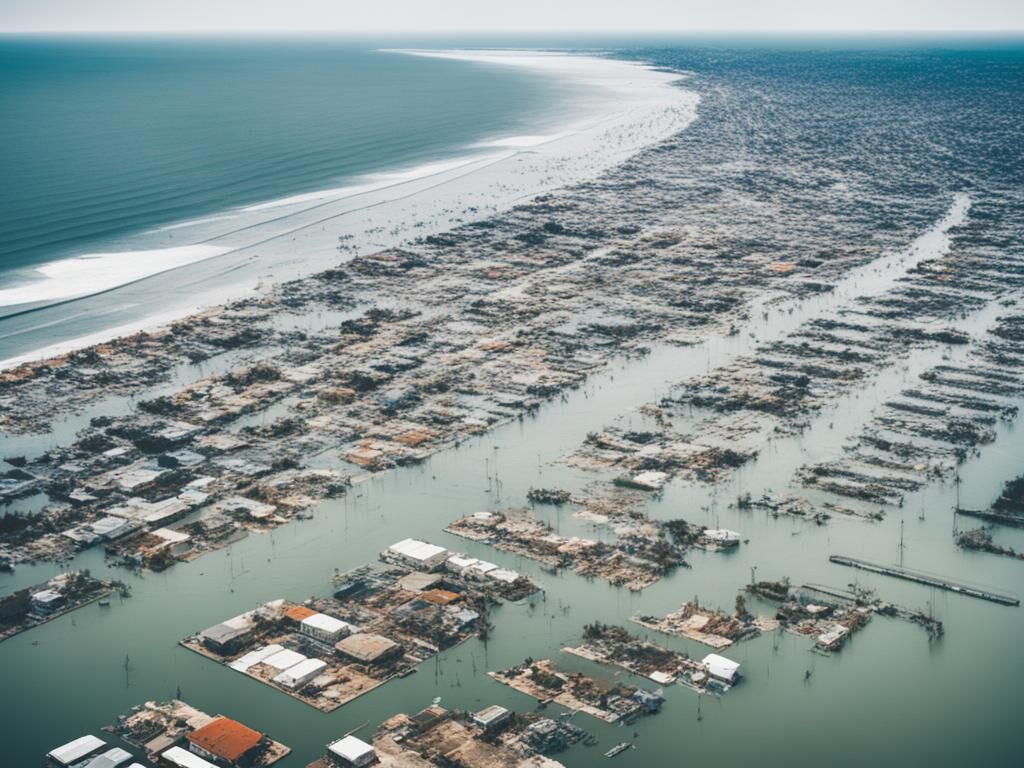
However, it is important to note that addressing climate change does not necessarily mean sacrificing economic prosperity. The transition to a low-carbon economy presents opportunities for innovation, job creation, and economic growth. Investing in renewable energy technologies, energy efficiency, and sustainable practices can stimulate economic development while simultaneously mitigating the impacts of climate change.
Overcoming the influence of economic concerns requires a shift towards a more holistic and long-term perspective. It is crucial to recognize the interconnectedness of environmental, social, and economic systems and prioritize sustainability in all decision-making processes. By considering the economic risks of inaction and the potential benefits of climate action, individuals and businesses can make informed choices that contribute to a sustainable and resilient future.
Overcoming Climate Change Denial
Addressing climate change denial requires a multifaceted approach that tackles the underlying motivations and cognitive biases contributing to this issue. One crucial aspect is promoting scientific literacy and critical thinking skills among individuals. By equipping people with the ability to recognize and evaluate reliable sources of information, we can empower them to make informed decisions about climate change.
Educating the public about the scientific consensus on climate change and the consequences of inaction is essential. Efforts should focus on disseminating clear and accessible information that highlights the overwhelming evidence supporting the reality of climate change.
Encouraging open dialogue and engaging with diverse perspectives is another vital step in combating climate change denial. By fostering an environment where different viewpoints can be respectfully discussed, we can encourage individuals to question their preconceived notions and consider the overwhelming scientific consensus.
Furthermore, promoting policies that align with scientific evidence is crucial. It is essential to develop and support initiatives that prioritize sustainability, renewable energy, and environmental conservation. These policies provide tangible solutions and demonstrate the commitment to addressing climate change.
In summary, overcoming climate change denial requires a combination of educational efforts, fostering scientific literacy, promoting open dialogue, and implementing evidence-based policies. By addressing cognitive biases, equipping individuals with critical thinking skills, and emphasizing the scientific consensus, we can forge a path towards a more informed society that actively tackles climate change.
The Impacts of Climate Change Denial
Climate change denial has a profound impact on climate action, hindering progress in addressing the global challenges posed by climate change. By sowing doubt and spreading misinformation, denial undermines public support for policies aimed at mitigating and adapting to climate change.
This denial hampers efforts to reduce greenhouse gas emissions and transition to renewable energy sources, perpetuating inertia and delaying crucial action. The urgency of the climate crisis is often downplayed or dismissed, hindering the implementation of necessary measures and impeding meaningful change.
Furthermore, climate change denial erodes public trust in science and scientific consensus. This lack of trust can have far-reaching consequences, as it hampers the adoption of evidence-based policies and strategies necessary for mitigating climate impacts, building societal resilience, and preparing for future challenges.
The Responsibility of Individuals and Society
Addressing climate change requires the collective effort of individuals and society as a whole. By acknowledging the importance of individual action and embracing collective responsibility, we can make a meaningful impact on the planet’s future.
Individual Action on Climate Change
Each individual plays a vital role in combating climate change through their everyday choices and actions. By educating ourselves about the causes and consequences of climate change, we can make informed decisions that reduce our carbon footprint. Simple steps, such as conserving energy, using public transportation, and adopting sustainable practices, can collectively contribute to significant carbon emissions reductions.
Furthermore, engaging in informed discussions about climate change with friends, family, and colleagues can raise awareness and inspire others to take action. By sharing knowledge and encouraging others to join the cause, we can create a ripple effect of positive change.
Advocacy and Holding Elected Officials Accountable
To drive systemic change, it is crucial for individuals to advocate for evidence-based policies that address climate change. By staying informed about government actions and supporting candidates who prioritize climate action, we can shape policy decisions that benefit the environment and future generations.
Holding elected officials accountable for their environmental commitments is equally important. By actively participating in democratic processes, such as voting and contacting elected representatives, individuals can voice their concerns and demand action on climate change.
Collective Responsibility
Solving the complex challenges of climate change requires collective responsibility. As a society, we must recognize the urgency of the issue and work together to implement solutions that prioritize the health of the planet and future generations.
This collective responsibility extends beyond individuals to communities, businesses, and organizations. By collaborating and sharing resources, we can drive innovation, develop sustainable practices, and create a world that is better equipped to tackle the challenges of a changing climate.
| Individual Actions | Impact |
|---|---|
| Reducing personal energy consumption | Decreased carbon emissions |
| Adopting sustainable transportation methods | Reduced reliance on fossil fuels |
| Supporting renewable energy | Increased demand and investment in clean energy sources |
| Promoting sustainable practices within communities | Positive environmental impact at a local level |
By acknowledging our individual roles and embracing collective responsibility, we can create a sustainable and resilient future for ourselves and generations to come. The time to act is now, and together, we can make a difference.
The Path Forward: Action on Climate Change
Despite the challenges posed by climate change denial, there are tangible solutions that can propel us forward. To combat the impacts of climate change, it is crucial to implement policies that prioritize renewable energy, energy efficiency, and sustainable practices. By transitioning to cleaner sources of power and embracing sustainable technologies, we can significantly reduce greenhouse gas emissions and minimize further damage to our planet.
However, addressing climate change denial is equally important. Education and awareness campaigns play a vital role in countering denial and fostering a greater understanding of the urgency and reality of climate change. By disseminating accurate information and debunking misconceptions, we can empower individuals to take meaningful action and drive societal change.
To truly make a difference, collaboration is key. Governments, businesses, and individuals must work together to create a sustainable and resilient future. By aligning policies, investing in green technologies, and adopting sustainable practices, we can collectively reduce our environmental footprint and create a lasting impact. It is through this collective effort that we can overcome climate change denial and pave the way towards a brighter, more sustainable future.
Source Links
- https://en.wikipedia.org/wiki/Climate_change_denial
- https://psychology.org.au/community/advocacy-social-issues/environment-climate-change-psychology/resources-for-psychologists-and-others-advocating/the-psychology-of-climate-change-denial
- https://theconversation.com/the-thinking-error-that-makes-people-susceptible-to-climate-change-denial-204607


